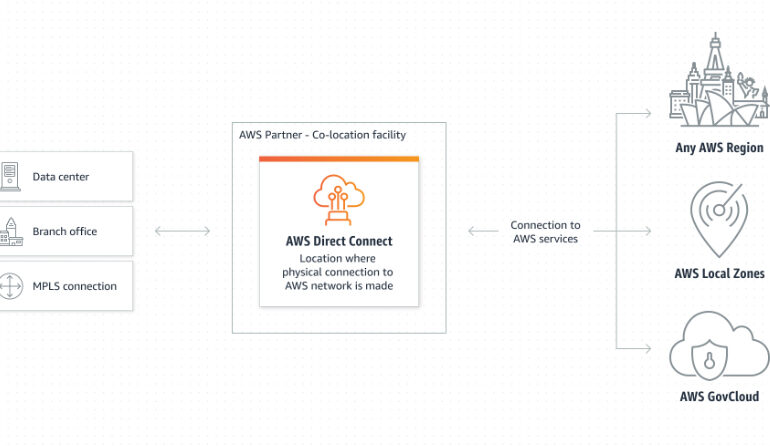How UCaaS Unified Communications as a Service Can Improve Your Business Continuity

Introduction
In today’s fast-paced business world, reliable and seamless communication is key to maintaining productivity and continuity. That’s where UCaaS (Unified Communications as a Service) comes into play. By integrating various communication tools and services into one comprehensive platform, UCaaS streamlines communication processes, enhances collaboration, and improves business continuity.
With UCaaS, businesses can ensure uninterrupted communication even in challenging situations, such as natural disasters or network disruptions. By leveraging cloud technology, UCaaS enables employees to access company communication tools from anywhere, at any time, using any device. This flexibility empowers remote workers, supports remote collaboration, and ensures business operations can continue even when physical office spaces are inaccessible.
Furthermore, UCaaS offers advanced features like real-time messaging, video conferencing, and file sharing, enabling teams to collaborate effectively regardless of their physical location. Through a unified interface, employees can seamlessly switch between different communication channels, improving efficiency and reducing downtime.
In conclusion, UCaaS is a transformative solution that improves business continuity by providing reliable communication tools, enhancing collaboration, and enabling remote work capabilities. By adopting UCaaS, businesses can future-proof their communication infrastructure and ensure uninterrupted operations, even in challenging circumstances.
In this article we will discuss the following important topics:
- Understanding Business Continuity
- The importance of Business Continuity for businesses
- How UCaaS can enhance Business Continuity
- Key features of UCaaS for Business Continuity
- Case studies of businesses benefitting from UCaaS in Business Continuity
- Implementing UCaaS for Business Continuity: Step-by-Step guide
- Choosing the right UCaaS provider for your Business
- Considerations and challenges in adopting UCaaS for Business Continuity
Understanding Business Continuity
Business continuity refers to the ability of a business to operate and deliver its products or services despite any disruptions or crises. It encompasses the strategies, plans, and actions taken to ensure that essential functions can be maintained during and after a disaster or unexpected event. Business continuity is crucial because any disruption in operations can result in financial losses, reputational damage, and loss of customer trust.
To achieve effective business continuity, organizations must have robust communication systems in place. Communication is the backbone of any business, and disruptions can lead to missed opportunities, delayed decision-making, and decreased productivity. That’s where UCaaS comes in, offering a comprehensive solution to enhance business continuity.
The importance of Business Continuity for businesses
Business continuity is of paramount importance for businesses of all sizes and industries. It allows organizations to mitigate risks, maintain customer satisfaction, and safeguard their reputation. Here are some key reasons why business continuity is vital:
- Risk Management: Business continuity planning helps identify potential risks and vulnerabilities within an organization. By understanding these risks, businesses can develop strategies to mitigate and minimize their impact.
- Customer Trust: Customers expect businesses to deliver products and services consistently. By ensuring business continuity, organizations can maintain customer trust and loyalty, even in the face of disruptions.
- Regulatory Compliance: Many industries have specific regulations and compliance requirements that businesses must adhere to. Business continuity planning ensures that organizations meet these obligations, avoiding penalties and legal issues.
- Competitive Advantage: When businesses can maintain operations during disruptions, they gain a competitive advantage over their competitors who may struggle to recover. Customers are more likely to trust and engage with businesses that have a proven track record of handling crises effectively.
How UCaaS can enhance Business Continuity
UCaaS provides several key benefits that enhance business continuity:
- Flexibility and Mobility: UCaaS leverages cloud technology, enabling employees to access communication tools from anywhere, at any time, using any device. This flexibility ensures that employees can continue to communicate and collaborate, even when they are unable to access physical office spaces.
- Seamless Communication: UCaaS integrates various communication channels, such as voice, video, chat, and email, into one unified platform. This integration streamlines communication processes, reduces downtime, and ensures that employees can easily switch between different channels as needed.
- Remote Collaboration: UCaaS enables remote teams to collaborate effectively, regardless of their physical location. With features like real-time messaging, video conferencing, and file sharing, teams can stay connected and work together seamlessly, even when they are geographically dispersed.
- Reliability and Redundancy: UCaaS providers typically have redundant systems in place, ensuring that communication services remain operational even in the event of network disruptions or hardware failures. This level of reliability minimizes downtime and keeps critical communication channels open.
Key features of UCaaS for Business Continuity
UCaaS offers a range of features that contribute to enhanced business continuity:
- Cloud-based Infrastructure: UCaaS operates on cloud-based infrastructure, eliminating the need for on-premises hardware and reducing the risk of physical damage or loss during disasters. Cloud-based systems also provide scalability, allowing businesses to quickly add or remove users as needed.
- Unified Communication Channels: UCaaS integrates various communication channels, such as voice, video, chat, and email, into one platform. This integration ensures that employees can seamlessly switch between channels and continue communicating, regardless of the circumstances.
- Mobile Applications: UCaaS providers often offer mobile applications, allowing employees to access communication tools and collaborate on the go. This feature is particularly valuable during situations where employees cannot access physical office spaces.
- Disaster Recovery: UCaaS providers typically have robust disaster recovery plans in place, ensuring that communication services can be quickly restored in the event of an outage or disaster. This level of preparedness minimizes downtime and allows businesses to continue operations smoothly.
- Security and Compliance: UCaaS solutions prioritize security and compliance, offering features like encryption, secure data storage, and adherence to industry-specific regulations. These measures protect sensitive information and ensure that businesses remain compliant with legal requirements.
Case studies of businesses benefiting from UCaaS in Business Continuity
Several businesses have successfully implemented UCaaS to improve their business continuity. Here are a few case studies that highlight the benefits:
Case Study 1: Company X
Company X, a multinational organization with offices across different time zones, implemented UCaaS to address communication challenges and enhance business continuity. By leveraging UCaaS’s unified communication channels and mobile applications, employees were able to collaborate seamlessly, regardless of their location. During a recent network disruption, the company relied on UCaaS to maintain communication and ensure uninterrupted operations.
Case Study 2: Company Y
Company Y, a mid-sized retail business, adopted UCaaS to improve communication and enhance business continuity. With UCaaS, the company was able to unify its communication channels, including voice, video, and chat, into one platform. This integration streamlined communication processes, reduced downtime, and enabled employees to work remotely during unforeseen circumstances, such as extreme weather conditions.
Case Study 3: Company Z
Company Z, a healthcare organization, implemented UCaaS to enhance business continuity and comply with regulatory requirements. By leveraging UCaaS’s secure and compliant communication features, the organization improved patient care coordination, even during emergencies. UCaaS’s mobile applications enabled healthcare professionals to communicate and collaborate effectively, regardless of their physical location.
Implementing UCaaS for Business Continuity – Step-by-step guide
Implementing UCaaS for business continuity involves several key steps:
- Assess Your Communication Needs: Evaluate your organization’s communication requirements and identify areas of improvement. Consider factors such as the number of employees, remote work capabilities, and specific communication challenges you face.
- Research UCaaS Providers: Research and compare different UCaaS providers to find one that aligns with your business requirements. Consider factors such as pricing, features, scalability, security, and customer support.
- Plan and Design: Work with your chosen UCaaS provider to plan and design the implementation process. Define your communication goals, establish timelines, and ensure that the implementation aligns with your business continuity objectives.
- Migration and Integration: If you are transitioning from an existing communication system, ensure a smooth migration process. Integrate UCaaS with your existing infrastructure and ensure compatibility with your devices and applications.
- Employee Training and Adoption: Provide comprehensive training to your employees on how to use the new UCaaS platform effectively. Encourage adoption by highlighting the benefits and addressing any concerns or resistance.
- Testing and Optimization: Conduct thorough testing to ensure that the UCaaS system is functioning as intended. Identify any areas for optimization and make necessary adjustments to improve performance and user experience.
- Monitor and Maintain: Once implemented, regularly monitor the UCaaS system to ensure optimal performance. Stay up to date with updates and security patches provided by the UCaaS provider.
Choosing the right UCaaS provider for your business
Choosing the right UCaaS provider is crucial for a successful implementation. Consider the following factors when selecting a provider:
- Features and Functionality: Evaluate the features and functionality offered by different UCaaS providers. Determine which features are essential for your business, such as real-time messaging, video conferencing, or file sharing.
- Scalability: Consider the scalability of the UCaaS solution. Ensure that it can accommodate your business’s growing needs and the number of users you expect to have in the future.
- Security and Compliance: Assess the security measures and compliance certifications provided by the UCaaS provider. Ensure that their platform meets your organization’s security requirements and complies with relevant regulations.
- Reliability and Support: Look for a UCaaS provider that offers reliable service and provides excellent customer support. Check their uptime guarantees, service level agreements, and responsiveness to customer inquiries.
- Integration and Compatibility: Ensure that the UCaaS solution integrates well with your existing infrastructure and applications. Compatibility with your devices and operating systems is also essential.
- Cost and Pricing Model: Compare the pricing models of different UCaaS providers. Consider factors such as upfront costs, monthly fees, and any additional charges for extra features or users.
Considerations and challenges in adopting UCaaS for Business Continuity
While UCaaS offers numerous benefits for business continuity, there are some considerations and challenges to keep in mind:
- Internet Reliability: UCaaS heavily relies on internet connectivity. Ensure that your organization has a stable and reliable internet connection to avoid disruptions in communication.
- Data Security: As UCaaS involves storing and transmitting data through cloud-based systems, data security is crucial. Select a UCaaS provider that prioritizes data encryption and complies with industry-specific security standards.
- User Adoption: Ensure that your employees are adequately trained and onboarded to the new UCaaS platform. Address any resistance or concerns they may have and provide ongoing support to promote user adoption.
- Vendor Lock-In: Consider the long-term implications of choosing a specific UCaaS provider. Ensure that the provider offers flexibility and scalability, allowing you to switch providers if needed in the future.
- Integration Challenges: Integrating UCaaS with your existing infrastructure and applications may present challenges. Work closely with your UCaaS provider to ensure a smooth integration process and minimize disruptions during the transition.
Conclusion and final thoughts
UCaaS is a transformative solution that enhances business continuity by providing reliable communication tools, enhancing collaboration, and enabling remote work capabilities. By leveraging cloud technology, UCaaS ensures that businesses can maintain communication and operations, even in challenging circumstances such as natural disasters or network disruptions. The key features of UCaaS, such as unified communication channels, mobile applications, and disaster recovery capabilities, contribute to the seamless continuation of business operations. However, it is essential to carefully evaluate UCaaS providers, consider the challenges, and address potential concerns to ensure a successful implementation. By adopting UCaaS, businesses can future-proof their communication infrastructure, improve efficiency, and ensure uninterrupted operations, even in the face of unexpected events.








































